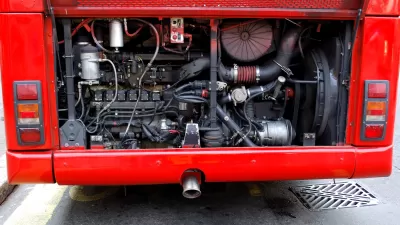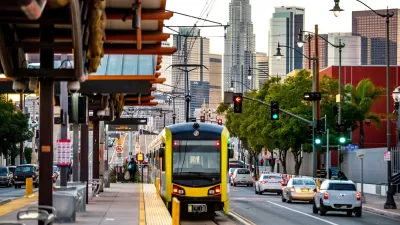While demand has increased, the weakening economy is drying up operating revenues for municipal public transit services, and the billions of dollars promised in the federal stimulus package - intended for capital projects - won't help either.
"Transit systems across the country are raising fares and cutting service even when demand is up with record numbers of riders last year, many of whom fled $4-a-gallon gas prices and stop-and-go traffic for seats on buses and trains.
Their problem is that fare-box revenue accounts for only a fifth to a half of the operating revenue of most transit systems - and the sputtering economy has eroded the state and local tax collections that the systems depend on to keep running.
The billions of dollars that Congress plans to spend on mass transit as part of the stimulus bill will also do little to help these systems with their current problems. That is because the new federal money - $12 billion was included in the version passed last week by the House, while the Senate originally proposed less - is devoted to big capital projects, like buying train cars and buses and building or repairing tracks and stations. The nation's transit woes threaten to deal another blow to the weak economy, keeping some workers from jobs they commute. And while the economic stimulus package being considered on Capitol Hill includes tax cuts intended to put more spending money in people's pockets, fare increases promise to take a big bite for many commuters."
FULL STORY: Rider Paradox: Surge in Mass, Drop in Transit

Planetizen Federal Action Tracker
A weekly monitor of how Trump’s orders and actions are impacting planners and planning in America.

Maui's Vacation Rental Debate Turns Ugly
Verbal attacks, misinformation campaigns and fistfights plague a high-stakes debate to convert thousands of vacation rentals into long-term housing.

Restaurant Patios Were a Pandemic Win — Why Were They so Hard to Keep?
Social distancing requirements and changes in travel patterns prompted cities to pilot new uses for street and sidewalk space. Then it got complicated.

In California Battle of Housing vs. Environment, Housing Just Won
A new state law significantly limits the power of CEQA, an environmental review law that served as a powerful tool for blocking new development.

Boulder Eliminates Parking Minimums Citywide
Officials estimate the cost of building a single underground parking space at up to $100,000.

Orange County, Florida Adopts Largest US “Sprawl Repair” Code
The ‘Orange Code’ seeks to rectify decades of sprawl-inducing, car-oriented development.
Urban Design for Planners 1: Software Tools
This six-course series explores essential urban design concepts using open source software and equips planners with the tools they need to participate fully in the urban design process.
Planning for Universal Design
Learn the tools for implementing Universal Design in planning regulations.
Heyer Gruel & Associates PA
JM Goldson LLC
Custer County Colorado
City of Camden Redevelopment Agency
City of Astoria
Transportation Research & Education Center (TREC) at Portland State University
Jefferson Parish Government
Camden Redevelopment Agency
City of Claremont





























